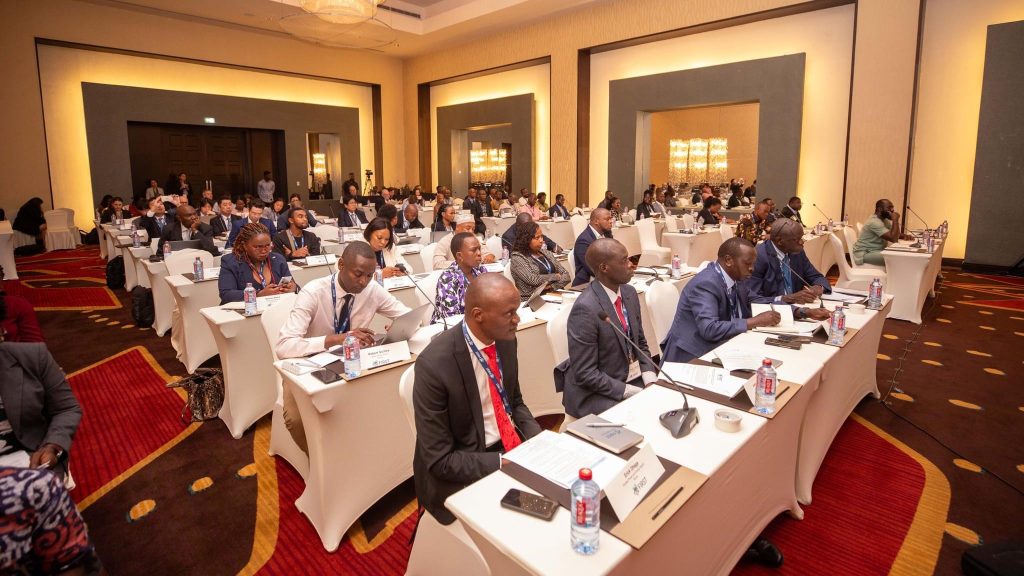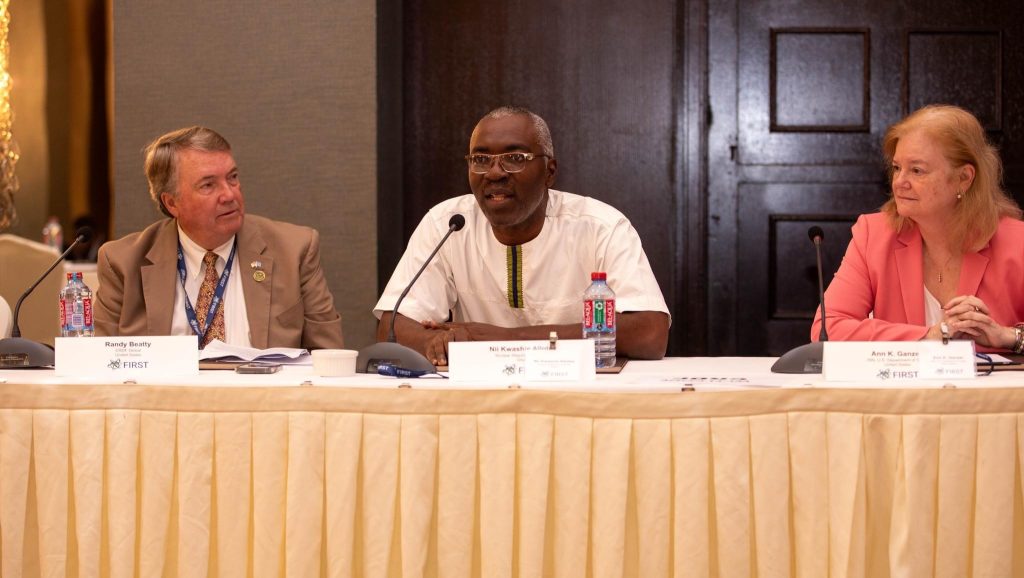By Albert Oppong-Ansah, GNA
Accra, Sept. 13, GNA - The United States of America (USA) Wednesday announced the establishment in Ghana of a Small Modular Nuclear Reactor (SMR) Training Hub to support Ghana’s nuclear workforce development.
The hub, to be a center of excellence for sub-Saharan Africa, is part of a $1.75 million funding package, which includes the provision of an SMR control room simulator, university partnerships, and academic exchanges.
SMRs are advanced nuclear reactors, which have a power capacity of up to 300 Megawatt per unit, (about one-third of the generating capacity of traditional nuclear power reactors), and can produce a large amount of low-carbon electricity.
Ms Ann Gazer, the USA Principal Deputy Assistant Secretary of State for International Security and Nonproliferation, said this at the opening of the U.S. Foundational Infrastructure for the Responsible Use of Small Modular Reactor Technology (FIRST) conference in Accra.
The conference is being co-hosted by the Ghana Atomic Energy Commission (GAEC) and seeks to help actors in nuclear reactor operations in Sub-Saharan Africa to better understand the role of civil nuclear energy, particularly SMR and microreactors, in meeting clean energy needs and climate goals in a safe and secure manner.

Ms Gazer said the technical and financial support was to position Ghana to serve as a regional training hub for nuclear power technicians and operators.
“Through this partnership, Ghana will be positioned to develop a skilled nuclear workforce for the country and the region consistent with the highest international standards of nuclear safety, security, and non-proliferation,” Ms Gazer said.
The US settled on Ghana for the project because of varied reasons including the country’s leadership position in regulatory regime, experience in handling nuclear reactors and initiatives on electronic mobility, she noted.
The partnership would assist Ghana and other like-minded countries in the region to move towards clean, affordable, safe and secure energy sources.
Ms Gazer said she was ready to discuss issues of mutual benefit and how the US could support advancing the shared, secure and safe nuclear energy and clean energy goals.
Mr Daniel Wordson, an Official from Nuclear Power Ghana, said the Government recognised energy as a key driver for sustainable socio-economic development.
Ghana was committed to increasing the energy supply and sustainably expand its infrastructure in line with the global energy transition, he said.
Mr Wordson reiterated the fact that SMRs in Ghana’s Nuclear Energy Plan was the most practical modern technology to addressing the energy challenge and the management of such resources to create wealth.

Dr Nii Kwashie Allotey, the Director-General, Nuclear Regulatory Authority (NRA), said SMRs were among the key technologies the country was considering under its nuclear power programme.
He said the country was at the phase two of the project, which entailed identifying a preferred site, conducting detailed site investigations and assessment of various technologies, selecting a strategic partner and conducting community engagement and stakeholder management.
Already, some vendors had been invited to the site to appreciate the terrain.
The NRA, he said, was poised to provide the needed oversight to ensure the plant met all the required technical specifications.
“We are also developing regulations and guidelines on how the plant should be designed, constructed and operated and to support the NRA Act 2015, Act 895, to work.”
Mr Enobot Agboraw, the Executive Secretary of the African Commission on Nuclear Energy (Afcone), said Africa was ‘energy poor’ and could not industrialise as other continents.
“There is no society in human evolution that has developed without a stable source of power. Africa is in an energy crisis. Nuclear technologies come in handy because we can leverage it to address the water situation, food security and health needs,” he said.
Mr Agboraw called for a multinational approach and regional cooperation to addressing energy poverty, adding: “It does not make economic sense for vendors to build plants for individual countries. We need to come together.”
GNA